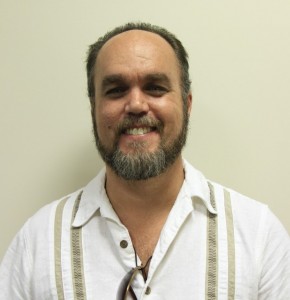 DENVER -- The first class of our day was in the morning at George Washington High School, a massive building here with nearly 1,500 students. My colleagues and I, still adjusting from Georgia time and weather, arrived a little late, hurried to the security desk for our visitor passes, and followed our host on a winding route through the halls and down several flights of stairs to a basement classroom. She was one of two instructors, and explained that the school saw near daily fights. She hoped to change that.
DENVER -- The first class of our day was in the morning at George Washington High School, a massive building here with nearly 1,500 students. My colleagues and I, still adjusting from Georgia time and weather, arrived a little late, hurried to the security desk for our visitor passes, and followed our host on a winding route through the halls and down several flights of stairs to a basement classroom. She was one of two instructors, and explained that the school saw near daily fights. She hoped to change that.
The other instructor was talking to a group of kids as we entered the room, asking questions about a video the class had just seen. There was a slight increase in talking as we entered, and the instructor explained we were there to observe the teaching, not the students. The students were ninth graders, some looking like young adults and others like grade school kids. They were animated and a little rambunctious, but overall seemed to be paying attention (sometimes with a little prodding) as the the instructors and the teacher who oversaw the class discussed how different emotions often underlie anger, and how our behavior can change as we become more and more angry. The kids called out examples from their own lives: cursing, shutting down, hitting things, hitting people. When we asked one young man how he liked the class he gave us two thumbs up.
The past week I have been on a tour of Denver, or more accurately a tour of Denver through the eyes of the staff and supporters of The Conflict Center (TCC), an organization that has provided individual skill building and support to those in conflict since 1987. It began in the basement of its founder, Liz Loescher, who, not incidentally, was also the first director of Georgia Conflict Center, where my companions and I work. TCC has continued since its founding helping people learn creative ways to engage conflict in their lives. They work with schools, neighborhoods, businesses, courts and others to fulfill the center’s mission “to prevent physical, verbal and emotional violence by partnering with individuals and communities to shift perceptions, attitudes and behaviors through education and skill building.”
The second class was later in the day. It was similar in content, but the kids were joined by parents or other family members in exploring fair and unfair ways to fight. They called out the answers, “empathy,” “bringing up the past,” “rain check,” “guilt tripping,” to each short video scenario. Next the instructors walked them through a six-step negotiation process, then the pairs spent time working on actual negotiations, assisted by the teachers and a translator since some of the parents only spoke Spanish. A lot of these kids were participating in the class after getting in various kinds of trouble. If they and their parents meet the attendance requirements their cases will be dismissed.
During a lull I spoke to the young man next to me, who was accompanied by his older sister. I asked how he liked the class. He said at first he thought it was going to be boring, but after seven weeks he had learned a lot and it was “pretty cool.” His sister spoke up, confirming that he was acting differently and handling disagreements with much more skill. “I wish I had these kinds of classes when I was his age,” she said. I agreed, and we all nodded our heads when I added that it made life a lot easier.
These two classes were part of TCC’s Emotional Intelligence and Critical Decision Making curriculum, the result of their ever developing understanding of what works in conflict management and how best to deliver it to different audiences. At the school the class serves as primary prevention, giving kids skills that will help them succeed at school and in life, and thus be less likely to get involved in antisocial behavior. The evening class, mostly involving kids already in some trouble and their parents, is secondary prevention aimed at keeping them from getting any further into the system. Besides these classes TCC offers several others to people all across Denver, serving more than 8,000 individuals last year.
Work like this is a form of activism. Beyond addressing existing problems with those who get in trouble, it focuses on changing the nature of conflict in our culture, giving people the tools they need to survive and thrive in worlds often filled with pitfalls. All of us can use these kinds of tools, but they can be critical to kids and adults facing other hardships. TCC is committed to providing at least half of its services to the poor. Empowered with alternative strategies they stand a better chance of success, and ultimately of changing the structure of the world we all live in.